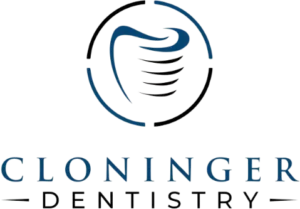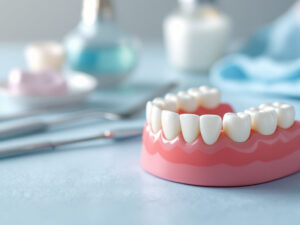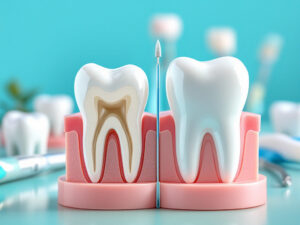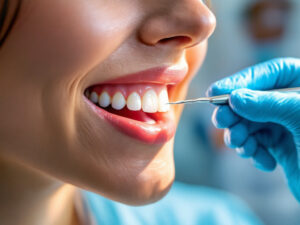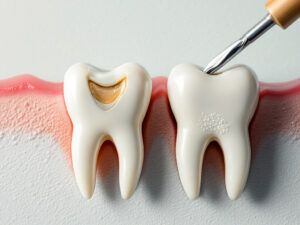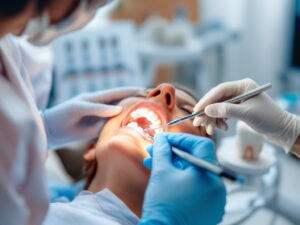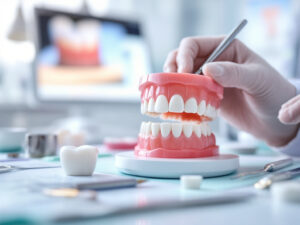Many individuals experience overwhelming stress when visiting the dentist. If you often feel apprehension and postpone essential treatments, you are not alone. Sedation for anxious patients can transform your dental visits into more calming and even positive experiences. At Cloninger Dentistry, our priority is to ensure you feel comfortable and supported every time you come in for care. In this article, you will discover how sedation works, the different sedation methods available, and why our practice can be the right choice for meeting your family’s dental needs.
Importance of sedation
Feeling tense or worried about dental treatments can undermine your physical and emotional well-being. It may also keep you from seeking the procedures you need, resulting in more significant oral health issues over time. By understanding sedation methods, you can empower yourself to take vital steps toward achieving and maintaining a healthy smile. Below, we examine the most common concerns patients face when they think about dental care and how sedation dentistry addresses those challenges.
Common sources of dental anxiety
Dental anxiety has many causes, ranging from fear of pain to negative past experiences. For some, the sensory aspects of dentistry—like the sound of drills or the smell of specific materials—intensify their worries. Others might grapple with a sensitive gag reflex or personal space issues that arise when someone works close to their face. These apprehensions can manifest as:
- Excessive sweating, elevated heart rate, or feelings of panic
- Difficulty sleeping the night before a dental appointment
- Mood swings or irritability that escalate as the visit approaches
According to the Cleveland Clinic, sedation is a state of relaxation achieved through specific sedative medications, also referred to as conscious sedation or twilight sedation. It is often recommended to manage anxiety during various procedures, including dental treatments (Cleveland Clinic). By addressing the root causes of your fears and implementing sedation for anxious patients, you and your dentist can build a more reassuring environment.
How sedation helps calm fears
Sedation dentistry reduces elevated stress levels by inducing calmness and comfort. Even though you remain conscious under mild to moderate sedation, you are much less aware of the surrounding activity. Crucially, you can still communicate if needed—whether to confirm that you are comfortable or to provide feedback on procedure-related steps. By making every minute spent in the treatment chair manageable, sedation fosters a greater sense of trust between you and the dental team. Over time, this leads to smoother experiences and possibly even a positive association with necessary procedures, from routine cleanings to complex rehabilitations.
Explore sedation options
When it comes to sedation for anxious patients, there is no one-size-fits-all approach. Every patient has unique comfort levels, overall health considerations, and specific treatment needs. At Cloninger Dentistry, we employ techniques that align with widely recognized sedation classifications, providing the optimal level of relaxation for each individual. Below, we break down commonly used sedation methods, referencing research-supported data on their effectiveness.
Nitrous oxide sedation
Nitrous oxide—often called laughing gas—is one of the most frequently used forms of conscious sedation. It begins to work within minutes and wears off quickly after you stop inhaling the gas (NCBI Bookshelf). For many anxious patients, nitrous oxide’s mild analgesic and anxiolytic effects create a more tolerable in-office experience.
- Administered through a small mask or nosepiece
- Induces a warm, pleasant sensation, helping you relax during treatment
- Allows you to drive yourself home afterward due to fast clearance from your system
If you are considering a light yet effective sedation method, nitrous oxide sedation could be the answer. Whether you are scheduled for a thorough cleaning, wisdom tooth removal, or even an extensive procedure like a cosmetic smile makeover, nitrous oxide can keep you calm without causing prolonged grogginess.
Oral conscious sedation
For patients who require a deeper level of relaxation but still want to remain awake, oral conscious sedation serves as an effective option. Common medications in this category include diazepam or triazolam, which you take in pill form about an hour before the dental appointment (Cleveland Clinic).
- Can make you feel drowsy or mildly sleepy
- Maintains your ability to respond to dental staff if necessary
- Often leads to limited recollection of the procedure
Because you may be groggy with oral sedation, a friend or family member usually needs to help you get home. This form of sedation works particularly well for appointments that last longer, such as porcelain veneer placement or a dental implant consultation.
IV sedation dentistry
For individuals with significant dental anxiety or those facing extensive, complex treatments, IV sedation may be the best route. This method delivers sedative medications directly into your bloodstream, resulting in a deeper degree of sedation (Cleveland Clinic). You will likely feel as if you are drifting off to sleep, though you remain responsive on a minimal level.
- Provides faster onset compared to oral sedation
- Lets the dentist quickly adjust medication dosages
- Causes little to no memory of the procedure once you awaken
If you have a large volume of dental work planned, IV sedation dentistry can streamline appointments and help you feel thoroughly at ease. It is frequently chosen by patients undergoing several extractions or multiple specialty services in one visit.
General anesthesia
While general anesthesia typically goes beyond the scope of moderate or conscious sedation, it can be applicable for highly invasive dental surgeries or in cases where extreme anxiety is present. Under general anesthesia, you lose consciousness entirely and require careful monitoring of your airway and cardiovascular function. This part of the sedation spectrum is less commonly used in a general dental office but may be recommended for certain complex procedures or specific patient needs.
Comparing sedation levels
To clarify how these options differ, see the sample table below:
| Sedation type | Depth of sedation | Common uses | Recovery time |
|---|---|---|---|
| Nitrous oxide | Mild relaxation | Basic anxiety relief, routine procedures | 15–30 minutes |
| Oral conscious sedation | Moderate relaxation | Longer treatments, moderate anxiety | ~24 hours for full recovery |
| IV sedation | Deeper sedation | Severe anxiety, complex or lengthy appointments | ~24 hours for full recovery |
| General anesthesia | Complete unconsciousness | Intensive surgeries, extreme phobia | Varies, longer monitoring |
Each method can be adapted to your comfort level. Whether you want light sedation for basic cleanings or deeper sedation for complex restorations, our sedation dentistry service is designed to make your experience as worry-free as possible.
Address safety considerations
Many individuals wonder if sedation is safe—especially those who have never experienced it. Dentistry professionals are trained to evaluate your overall health, personal anxiety triggers, and goals for treatment. Your dentist will carefully choose the appropriate sedation level and medication, ensuring that it aligns with both your physical condition and your comfort expectations.
Determining candidacy for sedation
Sedation can benefit a broad spectrum of patients, but not everyone is an ideal candidate for every type. Factors taken into account include:
- General health conditions, such as heart or respiratory issues
- Allergies or adverse reactions to certain medications
- Body mass index (BMI), which research shows can affect sedation requirements (NCBI)
- Special conditions that might complicate breathing, like sleep apnea
If you are generally healthy, sedation remains a highly viable route to alleviate fear. However, full disclosure of your medical history helps recommend the safest, most effective sedation strategy for you. Younger patients or people with a low BMI might require medication dosage adjustments, as indicated by certain studies on sedation dosing and anxiety (NCBI).
Monitoring and side effects
One of the cornerstones of safe sedation is diligent monitoring. At Cloninger Dentistry, our team supervises your vital signs throughout the procedure, ensuring that you remain stable. Oxygen levels, heart rate, blood pressure, and breathing patterns are tracked in real time. In the rare event that you become over-sedated, fast-acting reversal agents (like flumazenil for benzodiazepines) may be used to bring you back to a safer sedation level (NCBI Bookshelf).
While side effects are minimal, some patients may experience:
- Temporary drowsiness or grogginess
- Mild headache or nausea
- Dry mouth upon waking
These symptoms usually fade within hours of the appointment and can be addressed with simple self-care steps, such as hydration and rest.
Benefit from Cloninger Dentistry
Choosing who will provide sedation for anxious patients is a significant decision. At Cloninger Dentistry, we prioritize compassion and expertise. Our aim is to ensure you receive the supportive environment necessary for lasting payoffs in your oral health. Below, we delve into how our approach stands out and what you can expect when you invest in your well-being through our services.
Our approach to care
We understand that sedation is not merely a quick fix for fear but a tool that paves the way to long-term health. Here is what sets our practice apart:
- Individualized treatment plans: Every patient has unique medical, emotional, and lifestyle factors. Our team creates strategies that adapt to these needs.
- Patient education: We walk you through every aspect of the process—including sedation risks, potential side effects, and post-procedure care—ensuring you feel informed enough to make choices confidently.
- Empathy and reassurance: We use supportive language and encourage open communication at each step. This atmosphere builds trust and helps you feel respected as a partner in your treatment journey.
Our focus on patient comfort extends beyond sedation. If you need a specialized service—like a treatment planning consultation or a cosmetic dental evaluation—we take the time to appreciate your concerns and suggest the best path forward. This holistic approach underscores our commitment to truly comprehensive dental care.
Services to enhance comfort
In addition to sedation, we offer an array of advanced treatments to address a wide range of dental goals. By combining sedation methods with specialized services, we help you restore or improve your smile in a more relaxed setting:
- Professional teeth whitening sessions to brighten discolored enamel
- Implant placement service for stable and natural-looking tooth replacements
- Esthetic dental crown placement to protect weak or damaged teeth
- Laser gum contouring for an even, more balanced gumline
For patients concerned about requiring multiple visits due to anxiety, sedation can streamline these treatments into fewer extended appointments, saving both time and mental energy. We frequently hear that sedation was the transformative element that allowed individuals to follow through with care they had postponed for years.
Frequently asked questions
Below are five common questions people ask about sedation, the entire process, and ways to ensure a smooth and secure experience.
-
Will I be completely unconscious during sedation?
This depends on the type of sedation chosen. Nitrous oxide and oral conscious sedation help you relax while remaining aware of your surroundings. IV sedation can make you so drowsy that you may drift in and out of sleep, but you will still be responsive. General anesthesia, which is rarely needed for standard procedures, renders you fully unconscious. -
Is sedation only for complex dental work?
No, sedation can be used for a variety of reasons, from mild anxiety about a standard cleaning to apprehension about an extensive treatment plan. Even basic preventive procedures can feel intimidating if you are prone to dental fear, so sedation can keep you relaxed and motivated to maintain your routine care. -
What if I have a medical condition or take daily medications?
At Cloninger Dentistry, we conduct a thorough review of your medical history, current health conditions, and any medications you are taking. Certain conditions—like severe respiratory issues—may require special consideration or limit your eligibility for certain types of sedation. Transparency about your health is crucial to determine the best approach for you. -
How far in advance should I arrange a ride home?
If your plan involves nitrous oxide sedation only, you might be able to drive yourself home after a short recovery. However, for oral or IV sedation, you will feel groggy for a few hours or more. It is a good idea to arrange a ride at least a day or two before your visit so you can have peace of mind and focus on self-care afterward. -
Does insurance typically cover sedation for anxious patients?
Insurance policies differ widely in coverage for sedation, especially if sedation is used to manage anxiety rather than a strict medical necessity. You may want to consult your insurer about sedation benefits or contact our office to verify your coverage. Regardless of your plan, we will guide you through pricing and financing options, making it simpler to navigate the process.
Conclusion
When it comes to prioritizing your comfort and oral health, sedation for anxious patients offers a practical, comforting, and empowering solution. Cloninger Dentistry balances expertise with empathy, making it possible for even the most apprehensive patient to find relief. By exploring sedation options—ranging from mild nitrous oxide to deeper IV methods—you can move forward with necessary prevention, restorative procedures, or aesthetic improvements. No longer do you have to let fear stand in the way of achieving a healthier, more confident smile.
We encourage you to learn more about how our sedation dentistry service may fit into your unique treatment plan. Whether you are considering a complex process like iv sedation dentistry or simply need extra TLC for routine checkups, our supportive environment ensures you have the resources, care, and understanding that pave the way for lasting results. By partnering with Cloninger Dentistry, you can tap into a compassionate approach and ultimately make your dental care journey more enjoyable, safe, and transformative. If you have been postponing essential procedures out of worry, we invite you to reach out today—our team stands ready to guide you toward a fulfilling and stress-free path to oral health.
